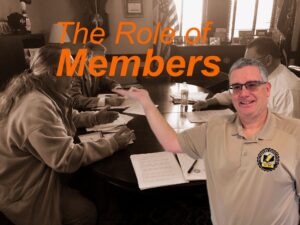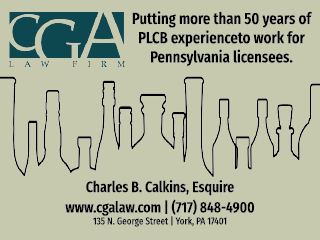 Pennsylvania Tavern Talk, a YouTube channel dedicated to the Keystone State’s family-owned taverns, bars, and licensed restaurants, released S1E4 as part of its playlist series titled Getting To Know PaTaverns.
Pennsylvania Tavern Talk, a YouTube channel dedicated to the Keystone State’s family-owned taverns, bars, and licensed restaurants, released S1E4 as part of its playlist series titled Getting To Know PaTaverns.
In this episode, Chuck Moran, executive director of the Pennsylvania Licensed Beverage and Tavern Association (PLBTA), takes viewers through the role of Members. It can be viewed by clicking here.
“As a Member of our Association, those who join can define their role within membership that best fits their comfort level,” Moran says. “But for sure, being a Member comes with responsibility on behalf of the entire industry.”
Moran explains in this episode that some Members simply want to support the association through their annual dues in order for Pennsylvania’s small business taverns, bars, and licensed restaurants to have a lobbying presence at the state capitol.
Some take on a bigger role by becoming a grassroots activist and making calls and visits to their state senator and state representative in Harrisburg when directed by the PLBTA. Yet, others contribute to TavernPAC. Meanwhile, many wish to exercise their voice and vote as a Member by providing input and feedback to the association’s Board of Directors.
During the show, Moran says some go as far as volunteering to join the association’s Board of Directors when seats become available.
“Ultimately, each individual can define their role as a Member, and we hope that role will be an active participant in the political process on behalf of the industry … Organized Taverns,” Moran says.
The PLBTA is a statewide membership association responsible for organizing small business taverns, bars, and licensed restaurants for political purposes at the state capitol. While in existence since the 1940s, the association reorganized in 2019 and has since been responsible for several industry bills and changes to the liquor code that has impacted Pennsylvania’s bar trade.
Pennsylvania Tavern Talk is a YouTube channel that sheds light on political matters involving the industry at the state capitol and PLBTA news.
Those interested in subscribing to Pennsylvania Tavern Talk can do so by clicking here.








